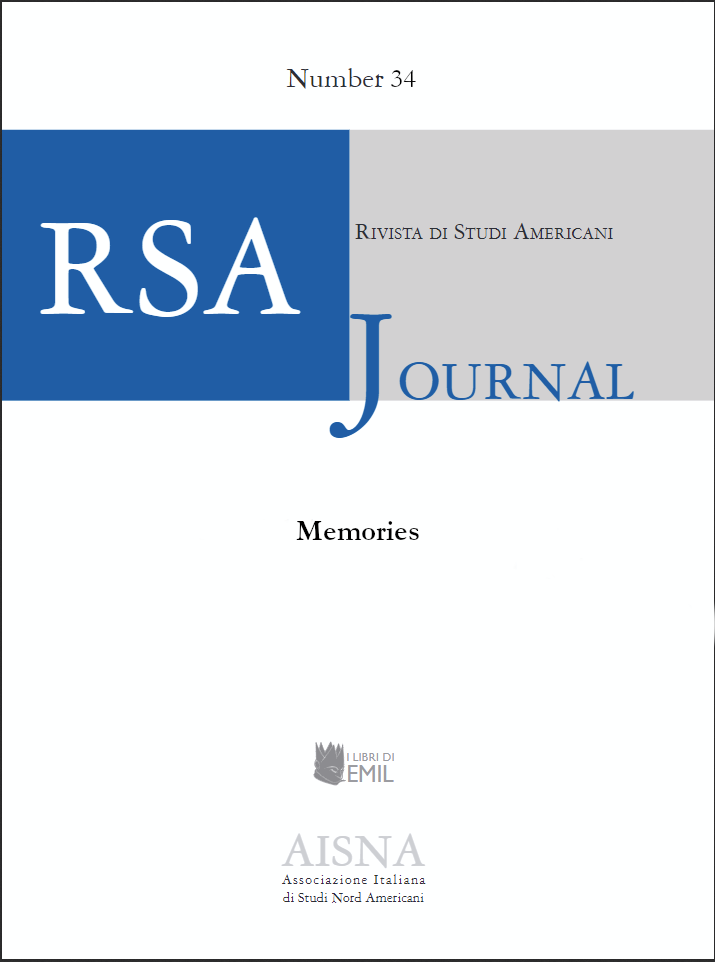The Urban Cowboy
Gender, the Frontier (Ethni)City and the Myth of the West in Mario Puzo’s “The Fortunate Pilgrim”
DOI:
https://doi.org/10.13135/1592-4467/8387Parole chiave:
gender, frontier, western, west, Mario PuzoAbstract
The article addresses how the mythical Western imaginary goes beyond its geopolitical borders, examining its influence on other urban landscapes such as New York. The city that never sleeps also captured a paradigmatic fascination for the concept of the West. This has been shown in Italian American culture and literature since the times of this ethnic settlement, although as part of the US cultural imagination at large the notion of the West is rarely bound to a concrete physical space. The article analyzes not only Italian or Italian American positions within transnational Western literature, but also the crucial interplay of gender representation in configuring old and new myths. To this end, the analysis concentrates on two central elements of the classical West(ern): the cowboy and the frontier, although reconceptualized in the context of US twentieth century immigration and urbanization. These two elemental features serve to identify the impact of US Westerns on Italian American culture in general and literature in particular through Mario Puzo’s novel The Fortunate Pilgrim (1965). As a result of shifting the critical attention about the West(ern) to the understudied space of the city, this article aims at providing an innovative insight to recover a figure which is both historical and legendary, that of the so-called urban cowboy.
##submission.downloads##
Pubblicato
Fascicolo
Sezione
Licenza
Avviso sul Copyright
RSAJournal applica una licenza CC BY-NC-ND a tutti i suoi contributi. Questa licenza consente agli utenti di copiare e distribuire il materiale in qualsiasi supporto o formato solo in forma non adattata, per scopi non commerciali e a condizione che venga esplicitato/a l'autore/autrice dell'opera. CC BY-NC-ND include i seguenti elementi:
- BY: L'autore deve essere riconosciuto come tale.
- NC: Sono consentiti solo utilizzi non commerciali dell'opera.
- ND: Non sono consentite opere derivate o adattamenti dell'opera.
Gli autori che pubblicano con questa rivista accettano i seguenti termini:
- Gli autori conservano il copyright e tutti i diritti di pubblicazione per i loro contributi alla rivista.
- Gli autori concedono alla rivista il diritto di prima pubblicazione in base alla licenza internazionale Creative Commons Attribution-NonCommercial-NoDerivatives 4.0, che consente ad altri di condividere l'opera non modificata per scopi non commerciali a condizione che venga esplicitato/a l'autore/autrice dell'opera e la sede di pubblicazione iniziale (questa rivista).
- Gli autori sono in grado di stipulare accordi contrattuali separati e aggiuntivi per la distribuzione non esclusiva della versione pubblicata dalla rivista (ad esempio, per inserirla in una repository istituzionale o pubblicarla in un libro), con l'indicazione che il contributo è stato precedentemente pubblicato in RSAJournal.




